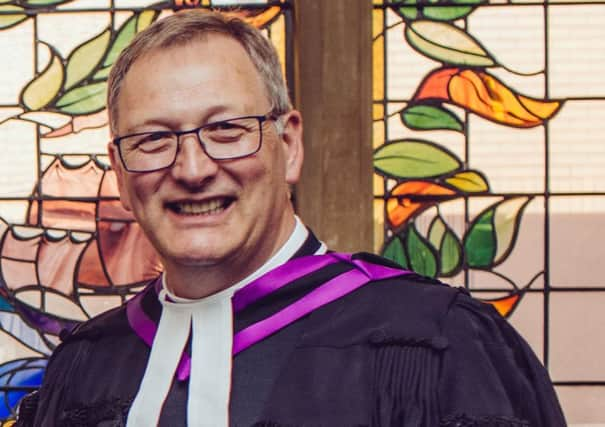'The future that is associated with hope is a gift of something new'


This year the seasons appear to have merged. Not too long ago winters seemed to be more or less as they used to be, cold and icy.
Summers were sunny, if not hot – even in Ireland.
Spring was a time when what had lain dormant since autumn would begin to wake, bud, blossom and bloom. There was a distinct visible rhythm to the year, which is not as discernable now as it once was.


Advertisement
Hide AdAdvertisement
Hide AdThere is, however, an assured rhythm to the church year when we celebrate Passiontide, Easter, Pentecost, Harvest, and then Advent, which leads to Christmas itself and the hope that was found lying in a manger.
In a lecture last month, I contrasted the difference between optimism and hope by paraphrasing the German theologian, Jürgen Moltmann: Optimism is the unfolding of what is already here and what is likely to happen in the future.
Hope, on the other hand, has to do with good things in the future that come from ‘outside’, from God.
The future associated with hope is a gift of something new.


It was such a gift that the Angel of the Lord proclaimed to the shepherds that first Christmas night.
Advertisement
Hide AdAdvertisement
Hide AdReturning to the fields through the streets of Bethlehem “…they spread the word concerning what had been told them about this child, and all who heard it were amazed at what the shepherds said to them” (Luke 2:17-18).
They couldn’t keep silent, glorifying and praising God “…for all the things they had heard and seen” (v20).
As the Apostle Peter later wrote, “Always be prepared to give an answer to everyone who asks you to give the reason for the hope that you have” (1 Peter 3:15).
Those ragged, joyful men did just that.
This year, during the recent presidential campaign in the United States, voters were faced with claims and counterclaims, as feelings were presented as facts that went beyond truth in our Post-Truth society.
Advertisement
Hide AdAdvertisement
Hide Ad‘Fact-Checking’, the need to investigate what we are being told in order to verify what is right and wrong – a recent phenomenon that is also on the rise in Ireland and the UK – has become a sad, but necessary development in public life.
Peter faced gospel critics and unbelievers without the need of ‘Fact-Checking’ when he wrote in his second Letter, “We did not follow cleverly invented stories when we told you about the power and coming of our Lord Jesus Christ, but we were eyewitnesses of his majesty” (2 Peter 1:16).
He was a literal witness and we have his personal testimony.
I too am a witness to the grace and power of the Lord Jesus in my life.
Advertisement
Hide AdAdvertisement
Hide AdWhile the true meaning of Christmas is often overlooked through the merging of the seasons in our Post-Truth world, it is my prayer that you will discover the Saviour who was born, lived, died and was raised again at the centre of this hope-filled story.
At this special time, I wish you a very happy Christmas, and in the words of the Apostle Paul, “May the God of hope fill you with all joy and peace as you trust in Him, so that you may overflow with hope by the power of the Holy Spirit” (Romans 15:13).
Rt. Rev Frank Sellar
Rt. Rev. Dr. Frank Sellar was formerly elected and installed as Moderator of the General Assembly of the Presbyterian Church in Ireland on 6th June 2016.
Dr. Sellar is Minister of Bloomfield Presbyterian Church in east Belfast and is the 64th Moderator to come from the City.
Advertisement
Hide AdAdvertisement
Hide AdHe was educated locally at The Hon The Irish Society School and Coleraine Academical Institution and attended New Row Presbyterian Church. Dr. Sellar is the 177th Moderator of the Presbyterian Church in Ireland since the election of the Very Rev. Dr. Samuel Hanna in 1840.